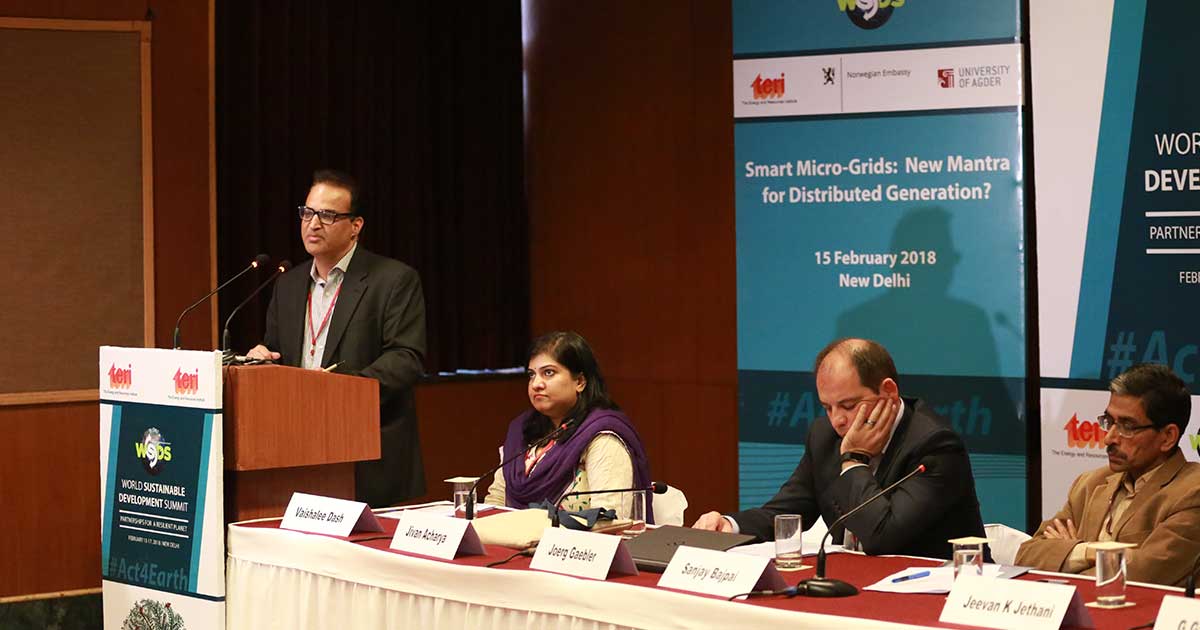
Smart Micro-Grids: Can they provide energy for all?
 I feel that people will very soon be generating their own power: Jiwan Acharya, Senior Energy Specialist, Asian Development Bank
I feel that people will very soon be generating their own power: Jiwan Acharya, Senior Energy Specialist, Asian Development Bank
A thematic track on “Smart Micro-Grids: A New Mantra for Distributed Generation” was jointly organised by TERI and the University of Agder (UiA), Norway, at the WSDS 2018 and was attended by the Norwegian Ambassador to India, HE Nils Ragnar Kamsvåg.
A micro-grid is a small network of electricity users with a local source of supply that is usually attached to a centralized grid but can also function independently. Many panelists at the session emphasized that micro-grids are complementary to grid-connected power and not an alternative. However, they also pointed out that in remote villages of India, micro-grids might be the only option to obtain reliable electricity access.
Dr Arun Kumar Verma, IAS, Joint Secretary, Ministry of Power, pointed out that 40 million households in India are yet to be connected to electricity. However, he conceded that in most micro-grids in rural areas, the tariff is mutually agreed upon and is exorbitantly high for the poor. Hence, the viability is yet to be established. Similarly, Dr Sanjay Bajpai, Scientist ‘G’, Department of Science and Technology, emphasized that the challenge before them is to make renewable energy-based micro-grids affordable.
Mr Jiwan Acharya, Senior Energy Specialist, Asian Development Bank, said that while he is personally a big believer in smart grids, it is okay to accept that there are challenges. He added that support is needed for grid integration.
The track was divided into two sessions of which the first session was on addressing policy and regulatory challenges. The second session on experiences in implementing micro-grids, comprised panelists talking about their learning from on ground implementation. Dr Mohan Kolhe, Professor, UiA, gave a presentation about his implementation of micro-grids in Norway’s villages under the SEMIAH (Scalable Energy Management Infrastructure for Aggregation of Households) project.
Dr Ashok Das, Founder and CEO of SunMoksha in Odisha, presented his experiences in a remote village in Odisha where electricity access also created employment opportunities. He reminded everyone that a micro-grid is only a means and not an end in itself and we must not lose focus on the purpose behind energy access.
Another speaker, Mr Reji Pillai, President, India Smart Grid Forum (ISGF), Delhi, had his eye on the next generation of smart grids. He predicted that in the future, smart contracts executed through blockchain will become a reality to sell excess power from micro-grids between consumers, who will become ‘prosumers’. He also suggested Indian railway stations would prove to be a good place to set up solar PV plants.